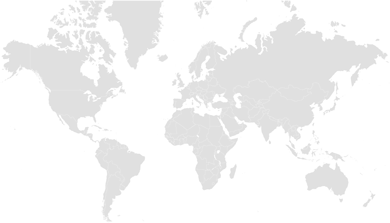Software
2021 • RTI International MSW-DST – Municipal Solid Waste Decision Support Tool
The Municipal Solid Waste Decision Support Tool (MSW-DST) is a computer-based software designed to help solid waste planners evaluate and optimize integrated municipal solid waste (MSW) management strategies. It allows users to analyze cost and environmental impacts associated with waste collection, processing, recycling, composting, energy recovery, and disposal. Developed using life cycle assessment (LCA) principles, it serves as a robust platform to make informed decisions regarding trade-offs in waste management systems. Designed primarily for local governments, it is also beneficial for consultants, industry stakeholders, and researchers working on sustainable solid waste systems, including resource recovery approaches.
Recovered Materials & Products
Energy
Electricity
Heat
Biogas
Nutrients
Compost
Waste Streams
Organic solid waste
Solid waste
Confirmed countries
Denmark


What is this tool intended for?
The MSW-DST is intended to support municipalities, solid waste planners, and environmental managers in evaluating integrated MSW management strategies. It aims to optimize cost and environmental performance, taking into account all stages of waste management including collection, recycling, composting, energy recovery, and disposal.
How does this tool work?
The MSW-DST uses a life cycle assessment (LCA) framework to assess the environmental impacts and costs associated with municipal solid waste management strategies. It includes process models for various waste management technologies such as collection, transfer stations, material recovery facilities (MRFs), landfilling, combustion, and composting. Users input community-specific data, and the tool provides outputs on total costs, greenhouse gas emissions, air and water pollutants, and energy recovery. An optimization model identifies the most cost-effective or environmentally beneficial management options.
Who might use this tool and with which types of stakeholders?
The MSW-DST is primarily used by local governments, environmental agencies, and solid waste planners. Other stakeholders include environmental and solid waste consultants, researchers and life-cycle assessment (LCA) practitioners, industry stakeholders, and policy makers who focus on sustainable and integrated waste management systems.
What stages of a process can this tool support?
The tool supports multiple stages of waste management, including planning and evaluation of waste strategies, decision-making for optimizing cost and environmental performance, scenario analysis for new and existing waste systems, and monitoring and performance assessment.
What skills, capabilities and resources are required to use this tool?
The MSW-DST requires technical expertise in waste management and basic knowledge of life-cycle assessment principles. Users need access to reliable data on waste generation, composition, infrastructure, cost, and environmental performance. Familiarity with optimization and scenario modeling enhances tool use. The tool operates on a computer with Windows OS, and a user manual and tutorials are available to assist users.
Where can this tool be used?
The MSW-DST can be applied in urban and regional settings across both developed and developing countries. It is particularly valuable in municipalities looking to improve or re-evaluate existing solid waste management systems.
Case examples of where this tool has been used
The MSW-DST has been applied in various settings to optimize waste management strategies. In the Pacific Northwest, the U.S. Navy used the tool to develop a regional solid waste management plan that reduced costs, increased recycling rates, and minimized environmental impacts. The State of Wisconsin applied the tool to evaluate the environmental benefits of statewide recycling programs. In Iowa, the Great River Regional Waste Authority used the MSW-DST to develop a plan for achieving a 50% recycling target while considering economic and environmental trade-offs. Similarly, Lucas County, Ohio, used the tool for a 15-year solid waste management plan, and Anderson County, South Carolina, utilized it to analyze residential curbside recycling and composting programs to identify the most cost-effective solutions.
Get the Tool
The MSW-DST is a proprietary tool developed by RTI and its partners. Users can download the tool and use it locally on their own computers, at the link provided below
https://mswdst.rti.org/index.htm
Learn more
Downloadable resources and tutorials are available on the RTI website
https://mswdst.rti.org/resources.htm
Technologies
Composting
Material recovery facilities
Themes
Design
Monitoring, Evaluation and Learning
GHG emissions
Waste-to-energy